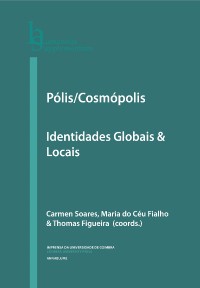Please use this identifier to cite or link to this item:
https://hdl.handle.net/10316.2/40823| DC Field | Value | Language |
|---|---|---|
| dc.contributor.author | Várzeas, Marta | |
| dc.date.accessioned | 2016-12-27T14:36:17Z | |
| dc.date.accessioned | 2020-09-08T14:54:00Z | - |
| dc.date.available | 2016-12-27T14:36:17Z | |
| dc.date.available | 2020-09-08T14:54:00Z | - |
| dc.date.issued | 2016 | - |
| dc.identifier.isbn | 978-989-26-1279-9 | |
| dc.identifier.isbn | 978-989-26-1280-5 (PDF) | |
| dc.identifier.uri | https://hdl.handle.net/10316.2/40823 | - |
| dc.description.abstract | One aspect of the history of myth in ancient Greece is its gradual transformation into an object of study. Intellectual interest in the interpretation of these narratives – which became understood as allegories or historical recollections – began in quite early times, but it is the Hellenistic period that saw the most intense development. The poet Callimachus reacts against these rationalizing ways of reading the traditional narratives. The idea behind the composition of his poems is that only the art of poets could save myth from the process of draining through rationalistic interpretation that deprived it of the enchantment capable of arousing pleasure and delight. | eng |
| dc.description.abstract | Um dos aspectos da história do mito na Grécia antiga é a sua gradual passagem a objecto de estudo. O interesse intelectual pela interpretação dessas narrativas, que passam a ser entendidas quer como alegorias quer como reminiscências históricas, começa relativamente cedo, mas é na Época Helenística que conhece os seus maiores desenvolvimentos. Contra tais formas racionalizantes de tratar as narrativas tradicionais se ergue a voz do poeta Calímaco. A ideia que preside à composição dos seus poemas é a de que só a arte dos poetas podia salvar o mito e resgatá-lo desse processo de esvaziamento operado pelas interpretações racionalistas que dele retiravam o encanto capaz de suscitar o prazer e o deleite. | por |
| dc.language.iso | por | - |
| dc.publisher | Imprensa da Universidade de Coimbra | por |
| dc.publisher | Annablume | por |
| dc.relation.ispartof | http://hdl.handle.net/10316.2/40203 | por |
| dc.rights | open access | - |
| dc.subject | Callimachus | eng |
| dc.subject | myth | eng |
| dc.subject | poetry | eng |
| dc.subject | Euhemerus | eng |
| dc.subject | Calímaco | por |
| dc.subject | mito | por |
| dc.subject | poesia | por |
| dc.subject | Evémero | por |
| dc.title | Calímaco e a linguagem universal do mito | por |
| dc.title.alternative | Callimachus and the universal language of myth | eng |
| dc.type | bookPart | por |
| uc.publication.collection | Humanitas Supplementum | por |
| uc.publication.firstPage | 149 | - |
| uc.publication.lastPage | 155 | - |
| uc.publication.location | Coimbra | por |
| dc.identifier.doi | 10.14195/978-989-26-1280-5_10 | - |
| uc.publication.digCollection | PB | por |
| uc.publication.orderno | 10 | - |
| uc.publication.area | Artes e Humanidades | por |
| uc.publication.bookTitle | Pólis/Cosmópolis: identidades globais & locais | - |
| uc.publication.manifest | https://dl.uc.pt/json/iiif/10316.2/40823/205354/manifest?manifest=/json/iiif/10316.2/40823/205354/manifest | - |
| uc.publication.thumbnail | https://dl.uc.pt/retrieve/11077014 | - |
| uc.publication.parentItemId | 54652 | - |
| uc.itemId | 69083 | - |
| item.grantfulltext | open | - |
| item.fulltext | With Fulltext | - |
| Appears in Collections: | Pólis/Cosmópolis: identidades globais & locais | |
Files in This Item:
| File | Description | Size | Format | |
|---|---|---|---|---|
| calimaco_e_a_linguagem_universal_do_mito.pdf | 544.88 kB | Adobe PDF |  |
Items in DSpace are protected by copyright, with all rights reserved, unless otherwise indicated.
